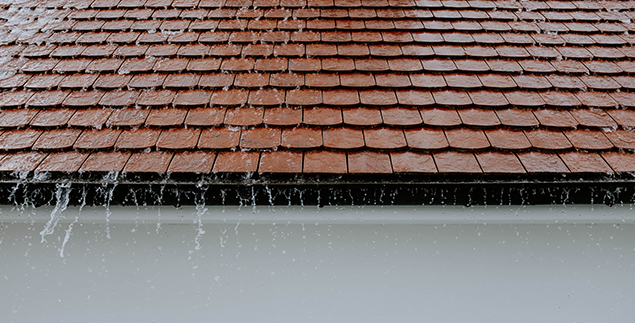Breaking Down a Sample Residential Roofing Contract
When you hire a roofer to perform work at your home, they’ll ask you to sign a contract. It’s a binding agreement where each party agrees to do something, and each party has rights if the other party fails to do their part. In the case of a roofing contract, the roofing contractor agrees to provide roofing services, and you, the customer, agree to pay them for it.
Here’s a line-by-line explanation of what you can expect to find in our standard residential roofing contract. Contracts with other roofing contractors may appear similar.

Photo by Olia Danilevich from Pexels
Page 1 of a roofing contract
On page 1 of your residential roofing contract, you’ll probably find the most important parts of the agreement: the description of services, and the cost to you.
It’ll begin by listing the job specifications, such as:
- Removal of shingles
- Cleaning or replacement of roof decking
- Inspection and repair of roof features like flashing
- Installation of new supplies
Every job is unique, so this section provides detailed information about what the roofer will do for you.
This section also sets some important limitations on changes to the agreement. Some of these limitations may include:
- That if any change orders occur, they must be in writing and signed by all parties.
- Warranty information – for instance, while a warranty may be issued for quality of workmanship and installation, any warranties on supplies will be dealt with by the manufacturer.
Read more: What do Roof Warranties Cover?
Next, the contract states how much the job will cost. This may include a deposit paid in advance, with the balance due to the roofer when they finish the job.

Photo by Cytonn Photography on Unsplash
Page 2 of a roofing contract
The second page, or “the fine print,” provides more information about each party’s rights and obligations.
- Delivery and payment: This establishes when you must pay for the services.
- Damage: The roofer should be responsible for damages to new materials that occur while crews are working, but not for damages that occur after they’re finished.
- Codes/ordinances/permits: You are responsible for building permits, homeowner’s association rules, etc.
- Acceptance of order: This states when the contract officially takes legal effect.
- Insurance and risk of loss: You are responsible for maintaining insurance that covers fire and weather damage.
- Job site conditions: You must provide crews with a clear worksite. If they are delayed because of obstructions in the work area, you are responsible for the cost
- Limited warranty/exclusive remedy: This describes the warranty provided for workmanship. The warranty may be void if you do not pay the agreed price for the work.
- Construction/service calls: Standard methods will most likely be used unless noted otherwise on page one of the contract. You understand that temperature and other environmental conditions will affect your roof and that this is not a defect in the roofer’s work. Any work you request that is outside of the standard warranty will be an additional cost.
- Limitations of liability: The roofer’s liability to you for any damage to your home is limited to a refund of the money you have paid. If you are aware of damage that has occurred while the roofer is working at your home, you must notify them in writing within a set time period.
- Entire agreement: This two-page document is the entire agreement between you and the roofer. Any changes must be in writing and signed by both you and the roofer.
- Independent contractor: The roofer may hire subcontractors to perform some or all of the job. These subcontractors cannot make any changes to the contract on the roofer’s behalf.
- Dispute resolution: Any legal dispute that arises between you and the roofer related to this contract or the work described on page 1 will be filed in a district or county court.
- Jury waiver: Both sides waive the right to a trial by jury in the event of a legal dispute.
- Chapter 27 of the Texas Property Code deals with disputes over residential construction services. If you have a complaint about a construction defect, Chapter 27 requires you to notify the roofer in writing at least 60 days before you may file a lawsuit.

Photo by Adrien Olichon from Pexels
Get started with a trusted Central Texas Roofer
The experienced professionals at RoofCrafters provide unmatched workmanship and service to greater Austin. Contracts are clear and concise. We’ll even work with your insurance. Your first step: contact us today to schedule a roof inspection!
